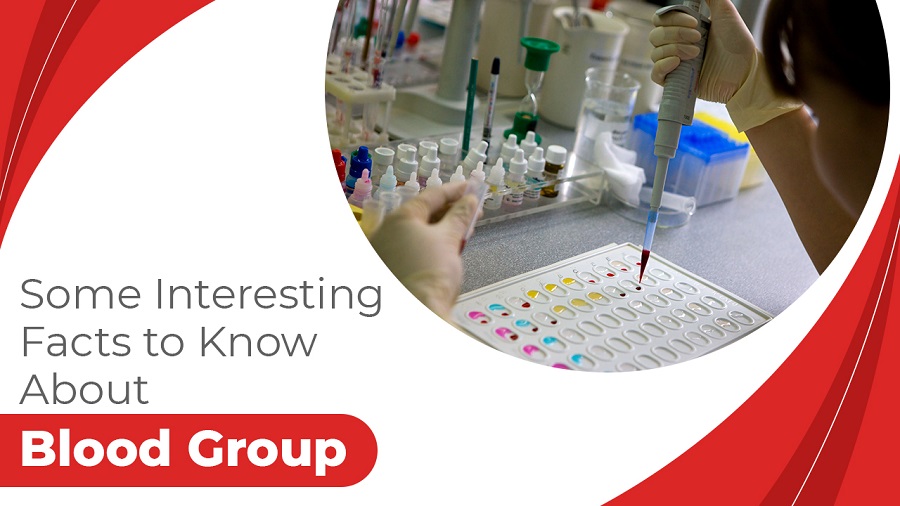Mainly, there are 4 key blood groups namely- O, AB, B and A. You inherit the blood group by genes of the parents and determination needs blood test. Every group is either RhD negative or RhD positive making total 8 groups in number. Read on this blog to know some interesting facts about blood tests.
Antigens and antibodies
Blood contains RBCs (red blood cells), platelets and WBCs (white blood cells) in the liquid namely plasma. However, various blood group tests are necessary for the identification of blood group using antigens and antibodies.
Plasma contains proteins or antibodies and these are important part of the natural defensive feature of the body. It helps in the recognition of foreign substances like germs and indicates the immune system. Further, the immune system combats against these and destroys them before they make any bad effect on the body.
Protein molecules and antigens are easily noticeable on surface of RBCs.
The ABO system
As per ABO system, you can find 4 blood groups.
-
- Blood group A- Comprises of antigens A on RBCs and anti-B antibodies in plasma.
- Blood group B- Comprises of antigens B on RBCs and anti-A antibodies in plasma.
- Blood group C- Comprises of both anti-B and anti-A antibodies in plasma without any antigen.
- Blood group AB- Comprises of both B and A antigens without any antibodies
In the UK, O blood group is mostly regular as half of the population in the country (48%) possess this blood group.
Wrong blood receiving with incorrect ABO group is life-threatening. For instance, if the person with B blood group receives A blood group then the antibodies anti-A attacks the A cells.
Hence, one should never donate the blood group A to the person with B blood group and vice versa.
Due to the lack of antigens in O blood group it is safe to donate to the person of any other group. Consult with the doctor to know more about blood group and its classifications.
The Rh system
RBCs (red blood cells) contain another set of antigens (protein) called RhD antigen. The blood with its presence is positive to RhD otherwise the blood is negative to RhD.
Hence the classification of blood groups is:
- A RhD positive (A+)
- A RhD negative (A-)
- B RhD positive (B+)
- B RhD negative (B-)
- RhD positive (O+)
- RhD negative (O-)
- AB RhD positive (AB+)
- AB RhD negative (AB-)
As per survey, 85 percent of total population of the UK is positive to RhD, amongst them 36% possess O+, being the most usual type!
In majority of cases, O- blood is safe to donate to anyone in need. It is the safest to use during medical emergencies when there is scarcity of specific blood type or the group is still unknown.
Due to lack of both B and A along any RhD antigen in the blood it is fully compatible to any blood group despite of RhD and ABO.
Blood group test
To know your specific blood group, the red cells of your blood sample will mix in various antibody solutions. For instance, blood group of B will clump to the solution of anti-B antibodies. If the sample doesn’t react to either of the antibody solution then it is O blood group. Numerous tests take place using various antibodies for the identification of the blood group.
In case the individual have blood transfusion in the past, then the collected specimen will test using the donor cells specimen containing RhD antigen and ABO. If no reaction is observed then donor blood having similar RhD and ABO type is beneficial to use.
Pregnancy
Blood test is essential for the pregnant women. It helps in the determination of Rh-factor in child to that of mother. If baby is RhD positive due to father and mother is negative then it can arise numerous complexities in the future. Hence the condition needs early treatment. Any pregnant woman with RhD negative blood must receive the same blood. Or else it can lead to Rhesus disease.
Donating blood
Almost every person can donate blood if they want to! But only a person in 25 can actually able to donate so. Blood donation is possible if:
- The person is healthy and fit
- The weight of person is minimum 7st 12lb (50kg)
- The age of the person is 17 to 66 years (above 70 is applicable for those who donate blood before)
- The person’ age is 70 and donated blood in the past couple of years
Find out the nearest clinic by searching with ‘blood group test near me’ online to know your blood group. You have to fix the appointment at the clinic to know your blood type.
